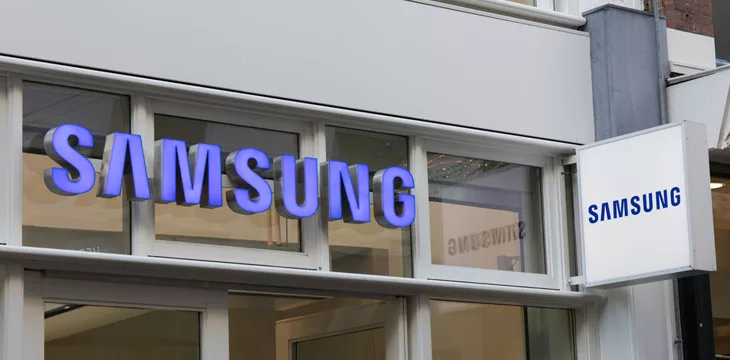|
Getting your Trinity Audio player ready...
|
Barely three months after banning employees from using generative artificial intelligence (AI) tools, Samsung Electronics (NASDAQ: SSNLF) announced its own AI chatbot built for mobile devices.
Dubbed Samsung Gauss, the AI model offers consumers several functionalities, including text creation, image generation, and the ability to generate and debug code for its in-house developers. The technology giant says the model is named after famed mathematician Carl Friedrich Gauss for his work in distribution theory, laying the groundwork for AI.
“Samsung Gauss is currently used on employee productivity but will be expanded to a variety of Samsung product applications to provide new user experience in the near future,” said Samsung in an accompanying press release.
As stated in the official announcement, the company is eyeing an integration of the AI model with mobile devices as early as 2024 in a pioneering move for the ecosystem ahead of its rival Apple (NASDAQ: AAPL). Apple has previously confirmed work on similar generative AI systems for mobile devices but failed to share concrete details of its plans during its last earnings call.
Apart from linking Gauss with mobile devices, Samsung hinted at using the generative AI tool for its other consumer technology products to “enhance the consumer experience by enabling smarter device control when integrated into products.”
Generative AI shot to the limelight in late 2022 after Microsoft-backed (NASDAQ: MSFT)
OpenAI launched ChatGPT, racking over 100 million users in the first 60 days. In the following months, Google (NASDAQ: GOOGL), Meta (NASDAQ: META), and Anthropic AI released their offerings to compete with ChatGPT as consumers flocked in, drawn by the promise of productivity and efficiency.
Despite the perks of increased productivity, Samsung banned employees from using generative AI tools in May over concerns about the security of the AI platforms. Samsung’s decision came on the heels of a data leak after an employee inserted an internal source code into ChatGPT, with the company clarifying that the ban was only temporary.
“We ask that you diligently adhere to our security guideline and failure to do so may result in a breach or compromise of company information resulting in disciplinary action up to and including termination of employment,” read an internal memo.
A tango with AI and emerging technologies
Before rolling out its generative AI offering, Samsung had dipped its toes in AI through a multiyear deal with Tenstorrent to build AI chips. The deal will see the Canadian-based Tenstorrent leverage Samsung’s Foundry Design Service team to introduce the “next generation of AI chipsets to market.”
Samsung has been dabbling with other novel technologies to improve customer experiences, including an experiment with blockchain for one of its subsidiaries in finance. The tech giant has since been roped in to lead the Bank of Korea’s efforts for an offline functionality in its central bank digital currency.
In order for artificial intelligence (AI) to work right within the law and thrive in the face of growing challenges, it needs to integrate an enterprise blockchain system that ensures data input quality and ownership—allowing it to keep data safe while also guaranteeing the immutability of data. Check out CoinGeek’s coverage on this emerging tech to learn more why Enterprise blockchain will be the backbone of AI.
Watch: Konstantinos Sgantzos talks AI and BSV blockchain with CoinGeek

 09-14-2025
09-14-2025 





